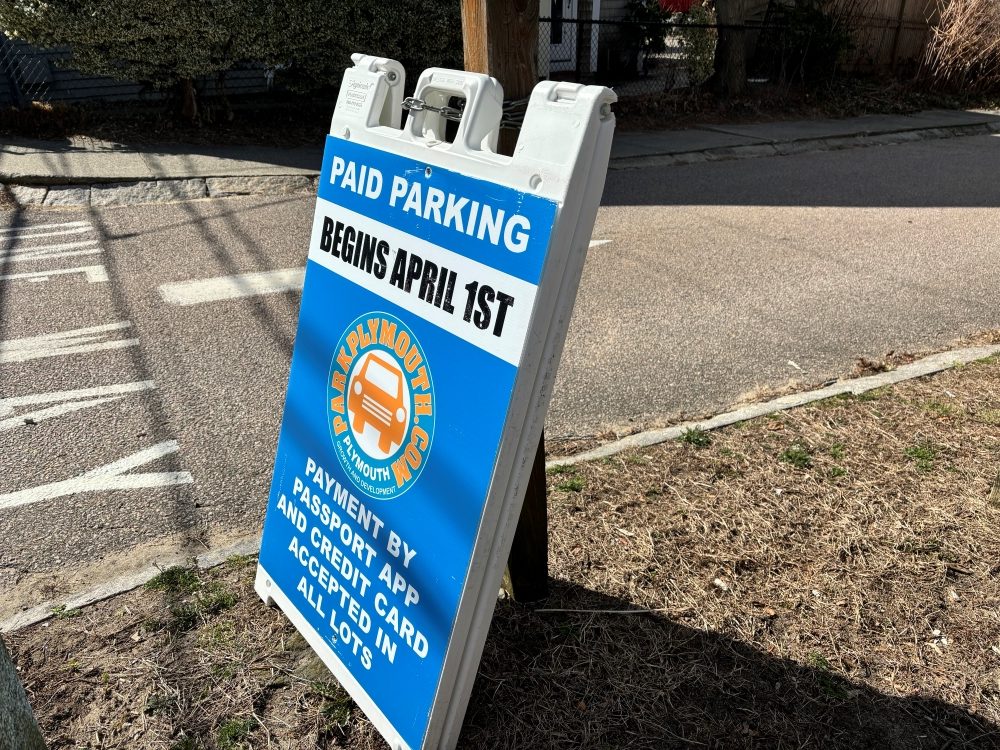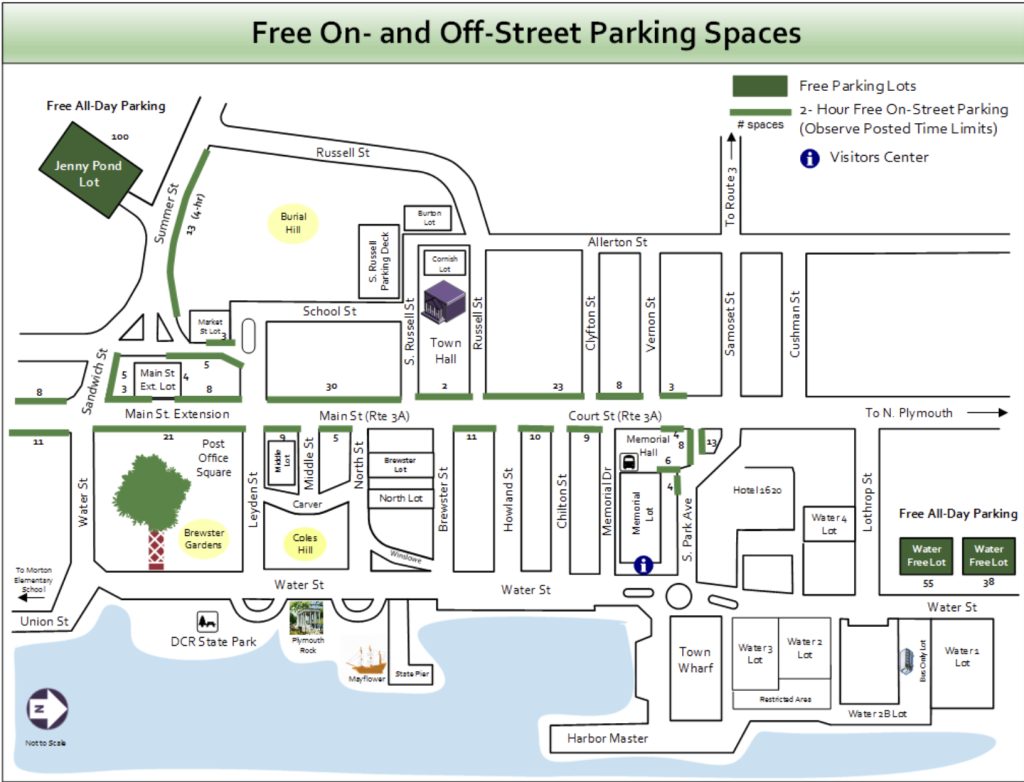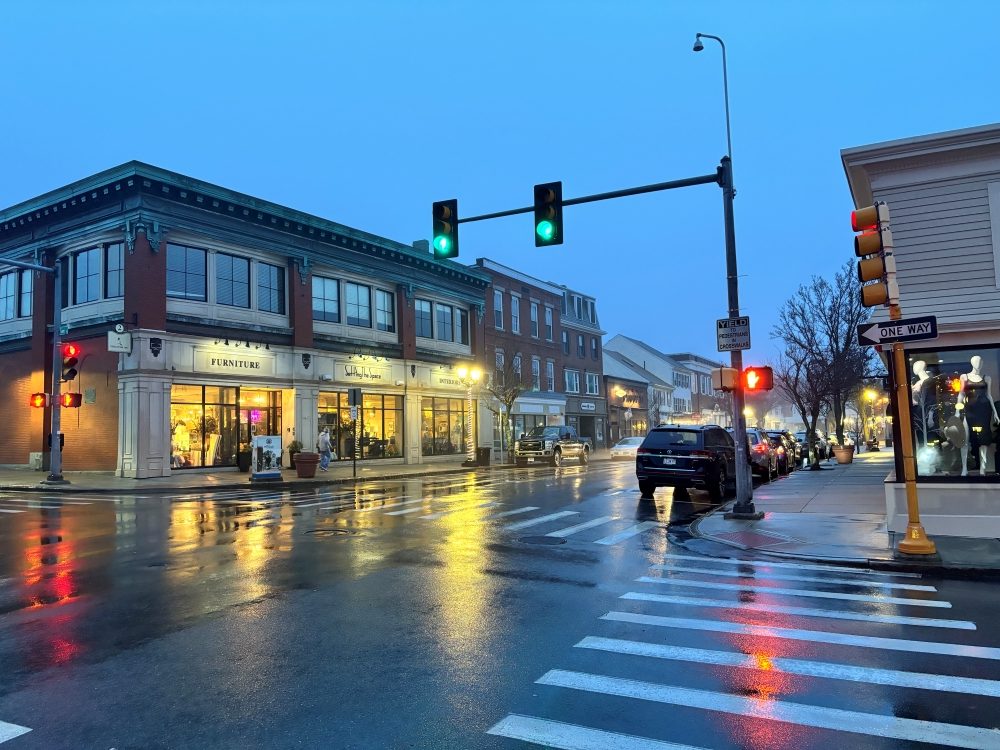It’s almost time for the annual spring unveiling: that special day when the covers come off parking meters and pay stations downtown and along the waterfront.
The seasonal reprieve from paid parking – which began Dec. 1 – expires on April 1. That means you’ll have to fork over $2 an hour to park in most instances – from 9 a.m. to 7 p.m. seven days a week, including holidays, unless you park in certain lots and spaces or buy a parking pass (more on that later).
This should not come as a surprise. But much like we treat the arrival of Daylight Saving Time as a new marvel every year (“it’s staying light out later!”), so too do many Plymouth residents greet paid parking season like it’s never happened before. Come next month, expect a familiar barrage of – often unfair – beefs about ruthless “meter maids” (a phrase long past its expiration date). I was only in the space for, like, two minutes, I swear to God!
Others, having struggled with fifth grade math, will call on the town to issue a free parking pass to every resident. Plymouth has about 60,000 registered vehicles and 1,475 paid parking spots. Think musical chairs, except with cars and trucks.
Park Plymouth, the private company that has a memorandum of understanding with the town to manage those spaces, is in a classic no-win situation. When it has a good day, dozens of drivers had a bad one. Promoting space turnover is a thankless job that has undoubtably gotten tougher in an age where defiance of basic rules and decorum is celebrated as personal freedom. (I’ve got a column about impatient motorists running red lights on my “to do” list.) It doesn’t help that Park Plymouth had gained a reputation for rudeness that in recent years seems to have been supplanted by civility, if not clarity.
Park Plymouth, like it or not, has a job to do. That doesn’t mean that the company – and by extension, town government – is immune to criticism about the how parking is managed on and around some of our busiest streets.
For starters, you need a master’s degree in parking to understand the do’s and don’ts of where you can leave a vehicle without fear of getting ticketed. The “Traffic Rules and Order” document is 70 pages long – more than 19,000 words. Peace accords between warring nations have been less verbose.
In the interest of encouraging readers to stick with this column to the end, I won’t get too weedy here, but you probably should know that there are 17 types of violations. Most come with a $30 fine, plus a $20 surcharge if the ticket isn’t paid or appealed within 21 days. If you don’t fork over the money within 42 days, “your vehicle registration will be sent to the Mass. Registry of Motor Vehicles (RMV) to be marked for non-renewal,” according to the rules. And if that happens, “you will be responsible for paying the ticket fine and the penalty amount plus an additional $20 for the RMV to ‘clear’ your registration of the marked citation.”
By this point, some of you may be considering buying a bike. Or staying home.

But there are ways to alleviate angst about finding a safe space within the Park Plymouth domain. A basic one is to get the free Passport app, which lets you pay for parking by phone, receive an alert when meter time is running out, and add more minutes without having to return to your vehicle.
Another stressor is the perception that there is “nowhere to park” downtown and along the waterfront. Finding a spot close to your destination can be a chore during peak times, but there’s a good reason for that: people come here because there are places to go and things to do. If downtown was a downer, as it was in the ‘90s – when it seemed like every other storefront was vacant – parking would be a breeze.
Complaints about the scarcity of spaces brings to mind an old Yogi Berra quote. When asked whether he planned to have dinner at a hot restaurant, the former Yankees great replied, “Nobody goes there anymore. It’s too crowded.”
Like most of you, I’ve driven to popular places over the years. Parking in these places is often tricky. It’s not something endemic to Plymouth.
For people with limited mobility or with small children in tow, I get it – having to walk a few blocks can be a major obstacle. But a lot of perfectly ambulatory drivers feel like they are entitled to pull up and disembark in front of their destination. If you’re able and willing to put one foot in front of the other, there is parking available in the downtown area nearly all the time. A moderate stroll is good for your health and the environment.
You can also take advantage of free and discounted parking.
Park Plymouth says there are 39 free 15-to-20-minute spaces in the downtown and waterfront area, and 190 free two-hour spaces (on Court and Main streets, and on Main Street Extension). A little farther out, but still easily walkable, there are 80 free spaces across from 225 Water St. (near Nelson Park), 49 at Nelson Park itself, and 96 at the Jenney Pond parking lot. (The Park Plymouth map below is worth grabbing as a screen shot.)
There was talk late last year of installing meters at 130 free spaces on Court and Main streets, but it appears the balloon being floated on that has been deflated for now.

For discounted parking, it’s a short stroll to Main and Court from the South Russell Street parking deck (across from Town Hall next to Burial Hill), which costs $1 an hour and $5 for all-day on the lower level. The upper level, along with two small lots behind Town Hall (Cornish and Burton), have the same rates, but only after 12 p.m. on Friday, and all day on Saturday, Sunday, and holidays.
If you work downtown or spend a lot of time there, the best option might be a parking pass. Prices range from $50 to $270 annually.
Now for some general grousing and suggestions.
- The screen resolution on meters and pay stations reminds me of a Game Boy handheld console from 1989, but at least that was fun. On a sunny day, the dull, low-res screens can be nearly impossible to read. On top of that, the number of steps it takes to buy an hour of parking requires adding an extra 5 minutes to any stay. Maybe the idea is to drive everyone to use the app.
- What’s with charging us to park on holidays? Other tourist-centric Massachusetts cities and towns, including Salem, exempt them. Even parking enforcement officers need a day off.
- The pay period should end at 6 p.m., not 7. With most people dining out earlier than ever, it’s aggravating to have to pay for an hour of parking at 6:30 or 6:45.
- Business owners and employees on Court and Main routinely tie up spaces close to their place of work. Park Plymouth has installed signs warning people that they must move their vehicle at least five parking spots every two hours. I don’t know whether it’s making a difference.
- There’s a loophole in the dense parking regulations that you could drive a Ford F-150 through. It should be eliminated. The rules say that permit holders can’t keep a vehicle in a lot for more than 72 consecutive hours. But Park Plymouth doesn’t specify how long a car must be moved before a driver can return it to the same lot for another 72 hours. Ten seconds? Ten minutes? In effect, it means that for the price of a pass you get a year-round parking space. That defeats a primary purpose of paid parking, which is to promote equal access to spaces.
I had a back-and-forth exchange with Park Plymouth Operations Manager Desmond Egan about a particularly blatant example of this inequity. Here’s the situation: A man has for years parked two cars in the same spaces at a public lot, leaving them there virtually all the time. He can often be seen working on one of them, even after dark. (I won’t name him or the lot because my purpose isn’t to embarrass an individual.) Egan insisted that the cars are moved every 72 hours but didn’t provide evidence of that happening.
He acknowledged that Park Plymouth has received complaints about the two spaces being monopolized and that the police were notified, “as it was something Park Plymouth could not address.” (Even though dealing with parking is its job.)
Egan also said that “the person who owns the cars… [has] a valid permit with Park Plymouth for the vehicles, which are properly registered and insured with the state.”
And yet the police were called anyway? I’m confused. (Plymouth Police spokesman Jason Higgins told me the department was reluctant to get involved.)
Egan also said that “the person in question was working on their vehicle rather than other cars.” As if that makes it better. What would happen if other pass holders decided to hack the 72-hour rule this way? Fewer spaces in public lots for the great majority of people who don’t take advantage of the rules, that’s what.
Egan insisted that no one is receiving “special treatment.” But it sure looks that way. No wonder Park Plymouth has a perception problem.
To submit your business news for consideration, see the “Send us your business news” note at the top of the Business section. Mark Pothier can be reached at mark@plymouthindependent.org. One other thing: Unlike our news stories, this column sometimes includes the author’s opinions.

